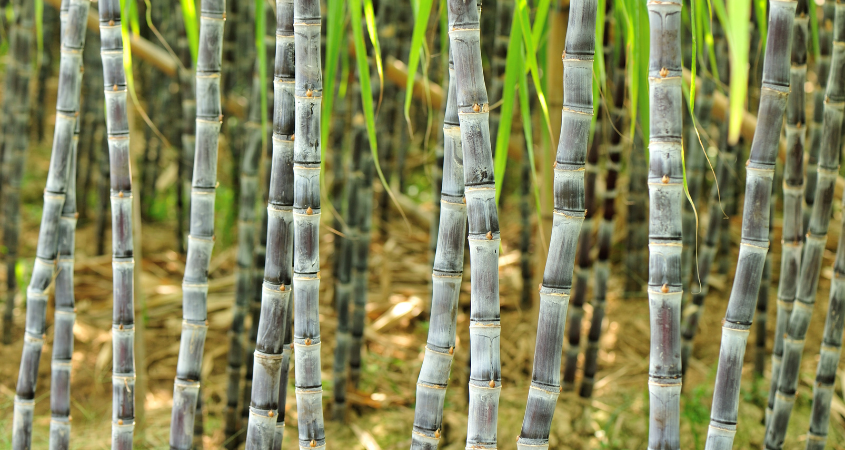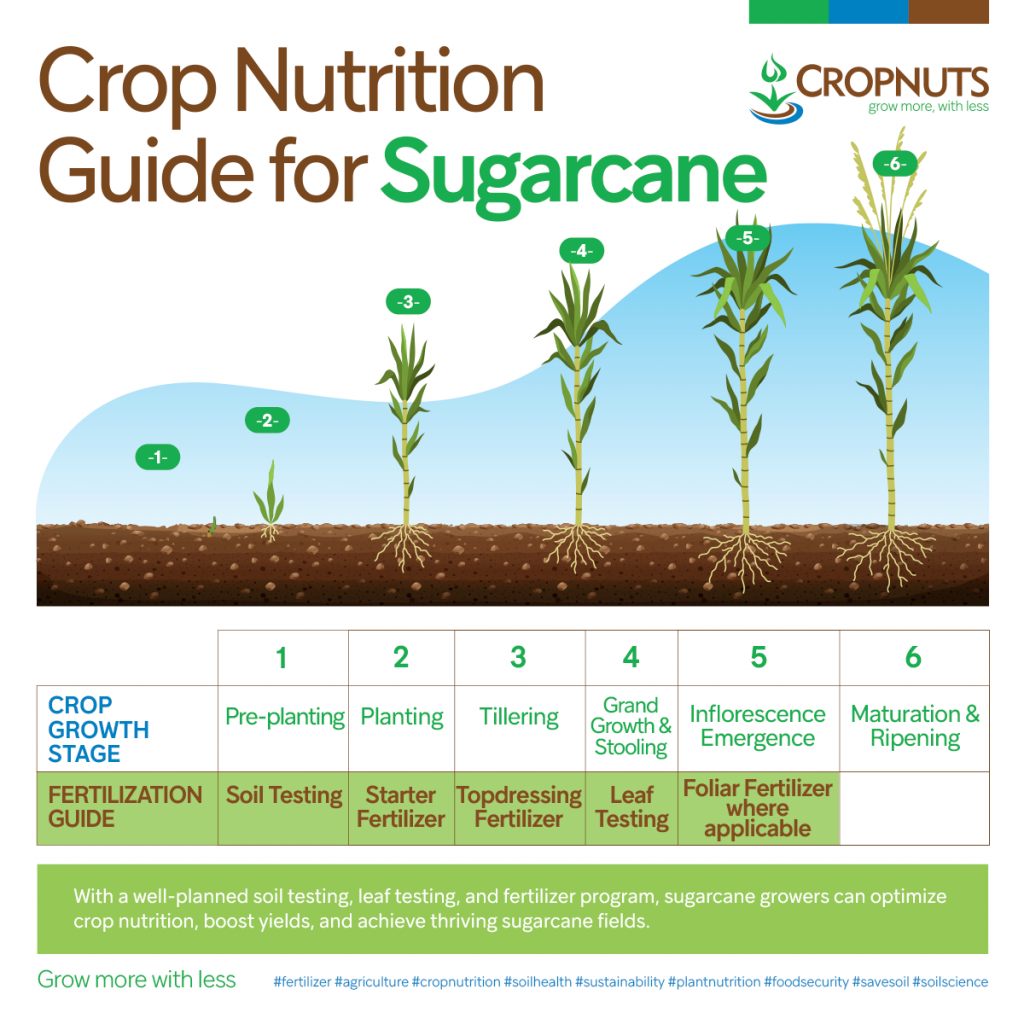
Growing a healthy and high-yielding commercial variety sugarcane crop requires a well-designed fertilizer program that addresses the crop’s changing nutrient needs throughout its various growth stages. Let’s delve into the essential fertilizer management strategy for your sugarcane cultivation:
Begin by conducting a comprehensive soil test before planting. Analyze nutrient levels and pH to identify any deficiencies or imbalances. Based on the soil test results, amend the soil with lime, organic matter, and necessary nutrients to create an optimal growing environment for your sugarcane.
Based on the soil test results, apply the recommended starter fertilizer mix that includes essential nutrients such as nitrogen (N), phosphorus (P), potassium (K), and micronutrients. This initial fertilizer application will provide the necessary nutrients for early root development and crop establishment.
As the sugarcane crop enters the tillering stage, focus on nitrogen and potassium to promote robust shoot development and the formation of new tillers. Balanced nutrition during this stage sets the foundation for a dense and productive crop stand.

During the grand growth stage, continue to supply nitrogen to support vigorous vegetative growth and canopy development. Use leaf testing to monitor the plant’s macro and micronutrient status and adjust the fertilizer program with foliar sprays where applicable.
In commercial sugarcane production, inflorescence emergence (flowering) is generally undesirable as it diverts the plant’s energy from sugar accumulation. To control flowering, carefully manage nitrogen levels and adopt practices that discourage flowering in sugarcane varieties that are prone to it.
As the sugarcane approaches maturity, shift the focus to potassium and other essential nutrients. Adequate potassium supply during this stage is crucial for optimal sucrose accumulation, leading to higher sugar content in the stalks.
Conduct regular leaf testing to monitor nutrient levels. Adjust the fertilizer program based on leaf analysis results to maintain the correct nutrient balance for optimal crop health and productivity.
Begin with a comprehensive soil test to determine baseline nutrient levels. Annual soil testing allows you to monitor nutrient changes and fine-tune your fertilization strategy for optimal sugarcane health and yield.
Remember, a well-managed fertilizer program tailored to the specific needs of your commercial variety sugarcane crop can significantly enhance sugar yield and overall profitability. Consult with our expert soil scientists at Crop Nutrition Laboratory Services to optimize your fertilizer management and cultivate a successful sugarcane crop.
Grow more with less
#savesoil #soilhealth #soilscience
Order our services and get to know how to improve your soil for better yeilds.